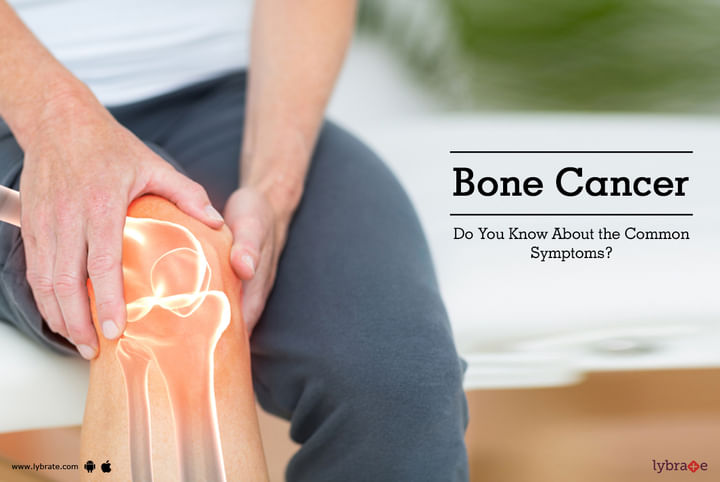Bone Cancer: Do You Know About the Common Symptoms?
Bone cancer is rare cancer, which comprises only 1% of all the cancers diagnosed. It affects people of all age groups. This type of cancer can be surgically removed through chemotherapy and radiation therapy.
Bone cancer does not include cancer that occurs elsewhere in the body and spreads to the bone. It is usually a tumorous mass accompanied by dull aching pain.
Types of Bone Cancer
-
Chondrosarcoma: This type of bone cancer usually affects the pelvis, hips and shoulders. In rare cases, the skull is also affected.
-
Ewing sarcoma: This type affects the soft tissues of the arms, legs and abdomen.
-
Osteosarcoma: This generally tends to affect teenagers and young adults. It is commonly found in long bones of the legs and in some cases the arms. It can affect any bone.
When should I be careful?
If you observe any of the following symptoms, then you should consult a doctor.
-
Bone pain- It is normal at times to experience this especially if you are physically active. However, if the pain persists then consult a doctor.
-
Swelling and tenderness near the affected area- If there is an abnormal swelling in an area on the bone. Do not confuse with a sprain.
-
Weakened bone- If you are continuously getting fractures and feel your bones are becoming brittle
-
Fatigue- If you are always tired
-
Unintended weight loss- If you lose weight rapidly due to no particular reason
Bone cancer is treatable and curable, with proper treatment and care. If you observe any of the above-mentioned symptoms, consult a doctor. Early diagnosis increases your chances of staging a successful recovery.
Diagnosis and Treatment
Bone cancer is diagnosed using any of the following methods/tools-
-
A physical examination
-
Blood test
-
Imaging test
Treatment for the disease includes radiation, tissue scraping, and surgery. The oncologist will recommend the best treatment option, depending on the severity of the condition. If detected in the early stage, bone cancer is curable. Therefore, it is imperative that you recognize the above symptoms in the initial stage.


+1.svg)
